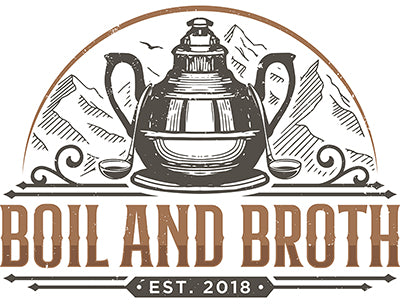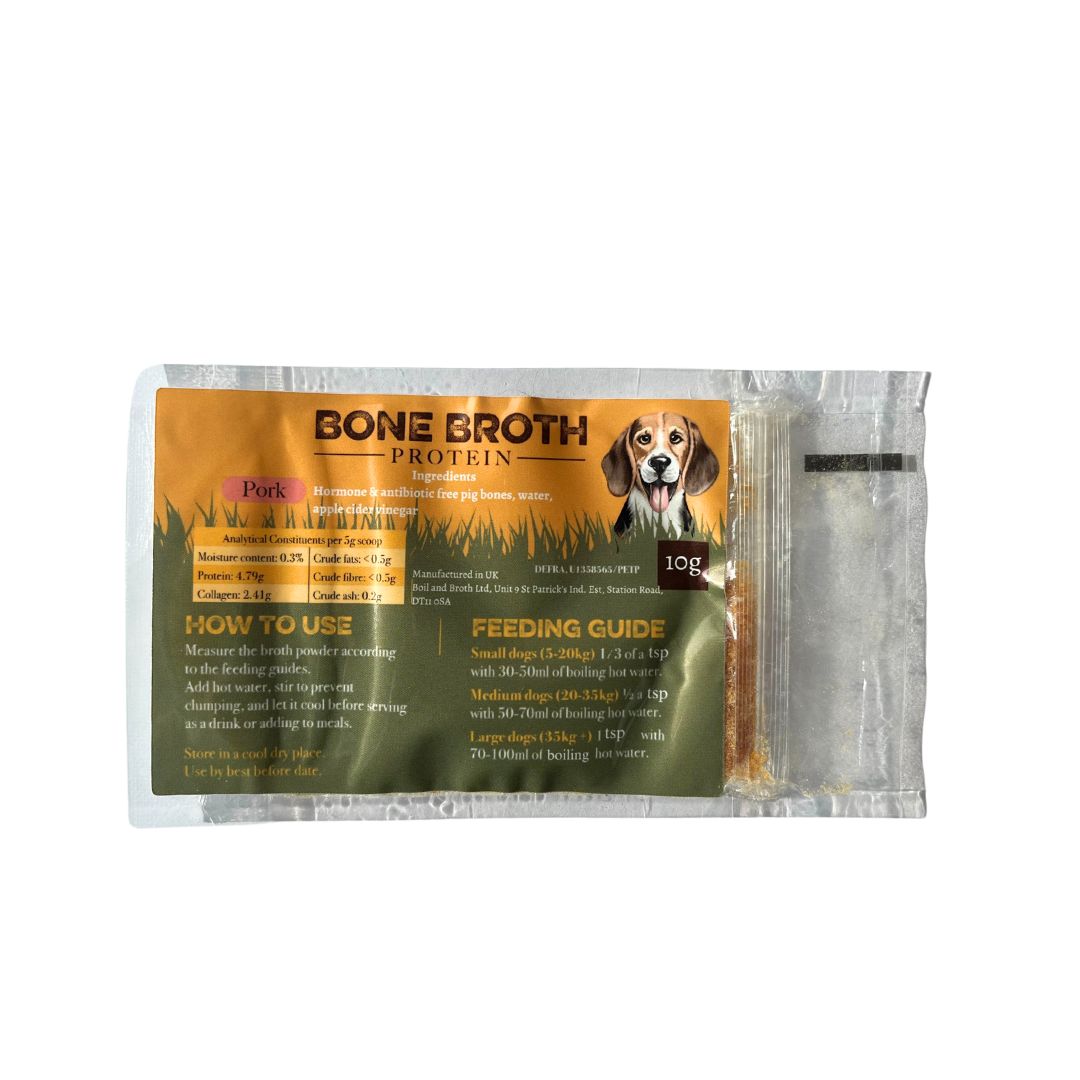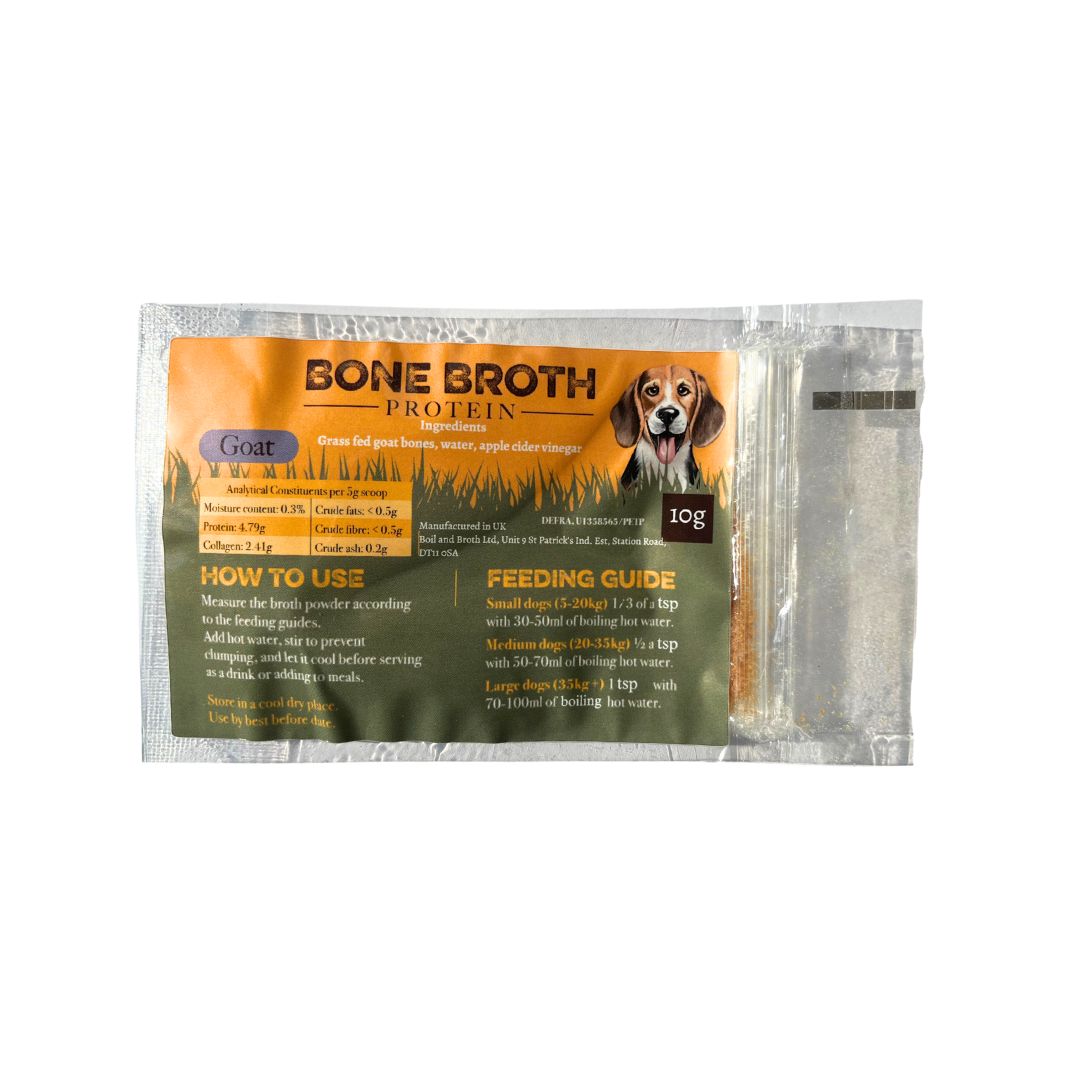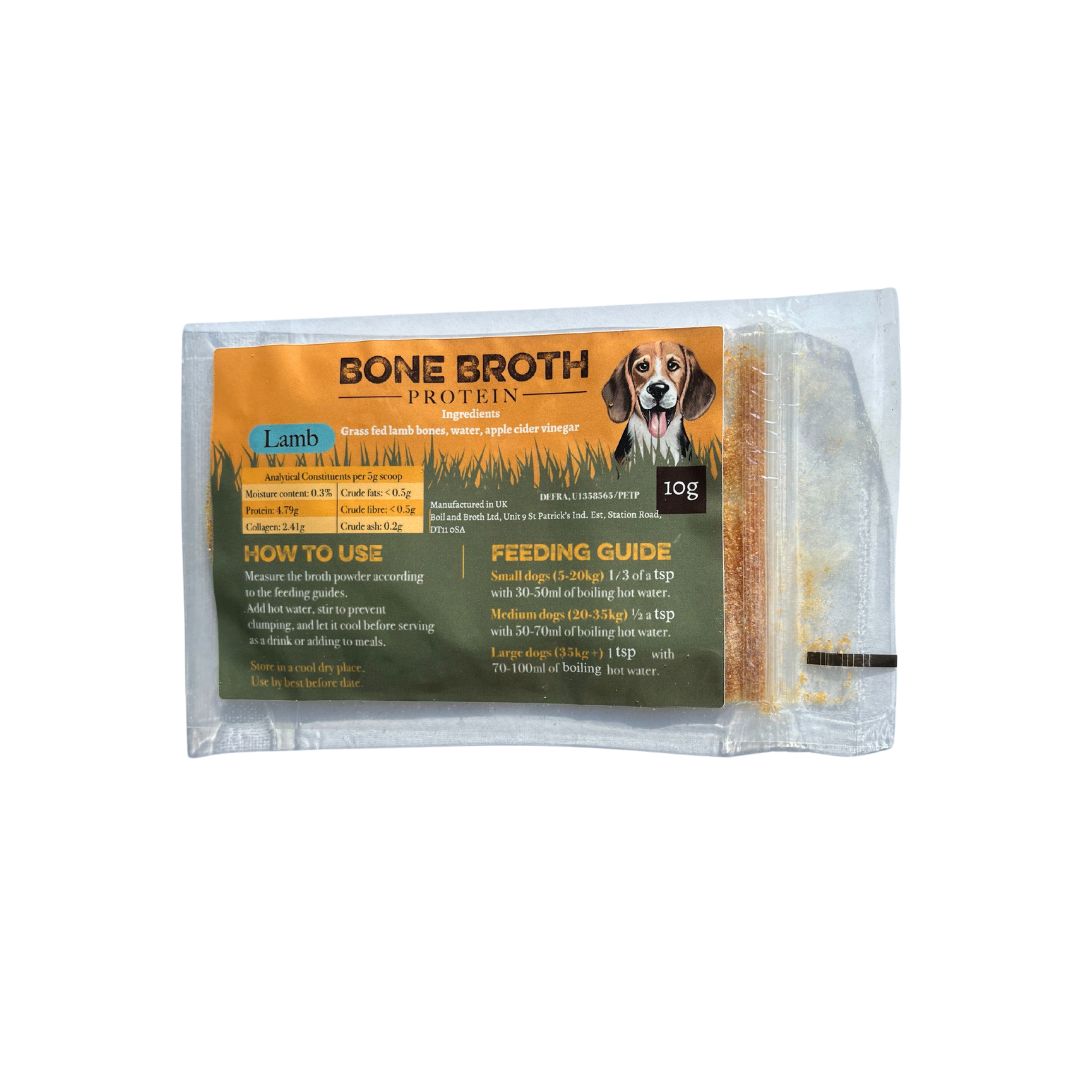Bone Broth For Dogs & Cats
Nourish Your Dog Naturally with Boil and Broth’s Bone Broth for Dogs & Cats
At Boil and Broth, we believe your dogs and cats deserve the very best. Our 100% natural bone broth is specially crafted to support your dog’s digestion, joint health, hydration, and overall wellbeing. Made in the UK using premium British beef bones, our broths contain no additives, preservatives, or fillers—just real nutrition, slowly simmered and dehydrated into a powerful daily supplement your dog, and cat will love.
Whether you're looking to boost your pet’s diet, support recovery, or simply offer a healthy treat, Boil and Broth's bone broth is a simple, effective way to care for your dog and cat from the inside out.
A Simple, Nourishing Boost – No Matter What Your Dog Eats
We understand that feeding your dog or cat can feel overwhelming these days. With so many options—from kibble to raw to wet food—and so much conflicting advice, it’s easy to feel unsure. That’s why we keep things simple. Boil and Broth bone broth is a complimentary feed that works alongside any diet—dry, wet, raw, or home-cooked.




Get Those Tails Wagging with Our Delicious Range of Bone Broths for Dogs, and Cats
Ready to see your dog or cat thriving? Our range of bone broths isn’t just tasty—it’s packed with natural goodness that supports digestion, joints, skin, and overall vitality. Most of our customers report visible improvements in their dog’s health and happiness within just 2 weeks—from shinier coats and better mobility to happier tummies and more energy.
Got a dog or cat with allergies or a sensitive stomach? No worries. We’ve got you covered with our novelty game proteins like venison and goat—ideal for dogs and cats who need a gentler option or are on elimination diets. With a variety of protein choices, there’s something for every pup to enjoy.
Give your dog and cat something they’ll love—and that loves them back.
Beef Bone Broth For Dogs & Cats
A high in natural collagen bone broth for dogs. Excellent for all dogs
Venison Bone Broth For Dogs & Cats
A highly nutritious game broth. Great for dogs with sensitive stomachs
Chicken Bone Broth For Dogs & Cats
A delicious roast chicken flavour. Perfect for dogs who need extra support with joints and ligaments.
Proudly British Made with Ethically Sourced Ingredients
At Boil and Broth, we’re passionate about quality and integrity. That’s why every batch of our bone broth is handcrafted in the UK using only ethically sourced bones from trusted British farms.
Our animals are grass-fed, pasture-raised, and well cared for, because we believe that happy, healthy animals create the most nourishing broths. We never cut corners—just clean, honest ingredients you can feel good about giving your dog.
When you choose Boil and Broth, you’re not only supporting your dog’s health—you’re supporting ethical farming and sustainable British businesses, too.
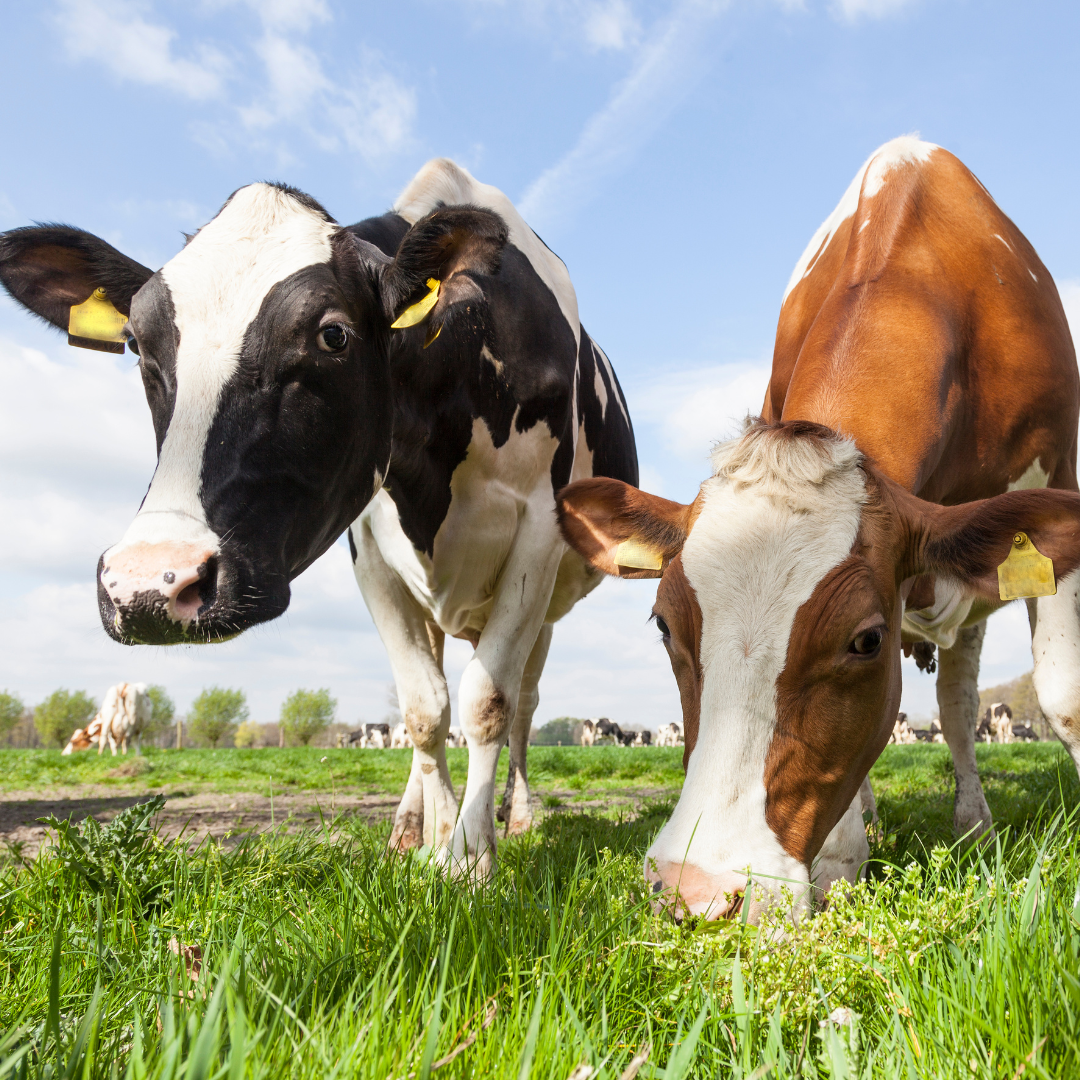
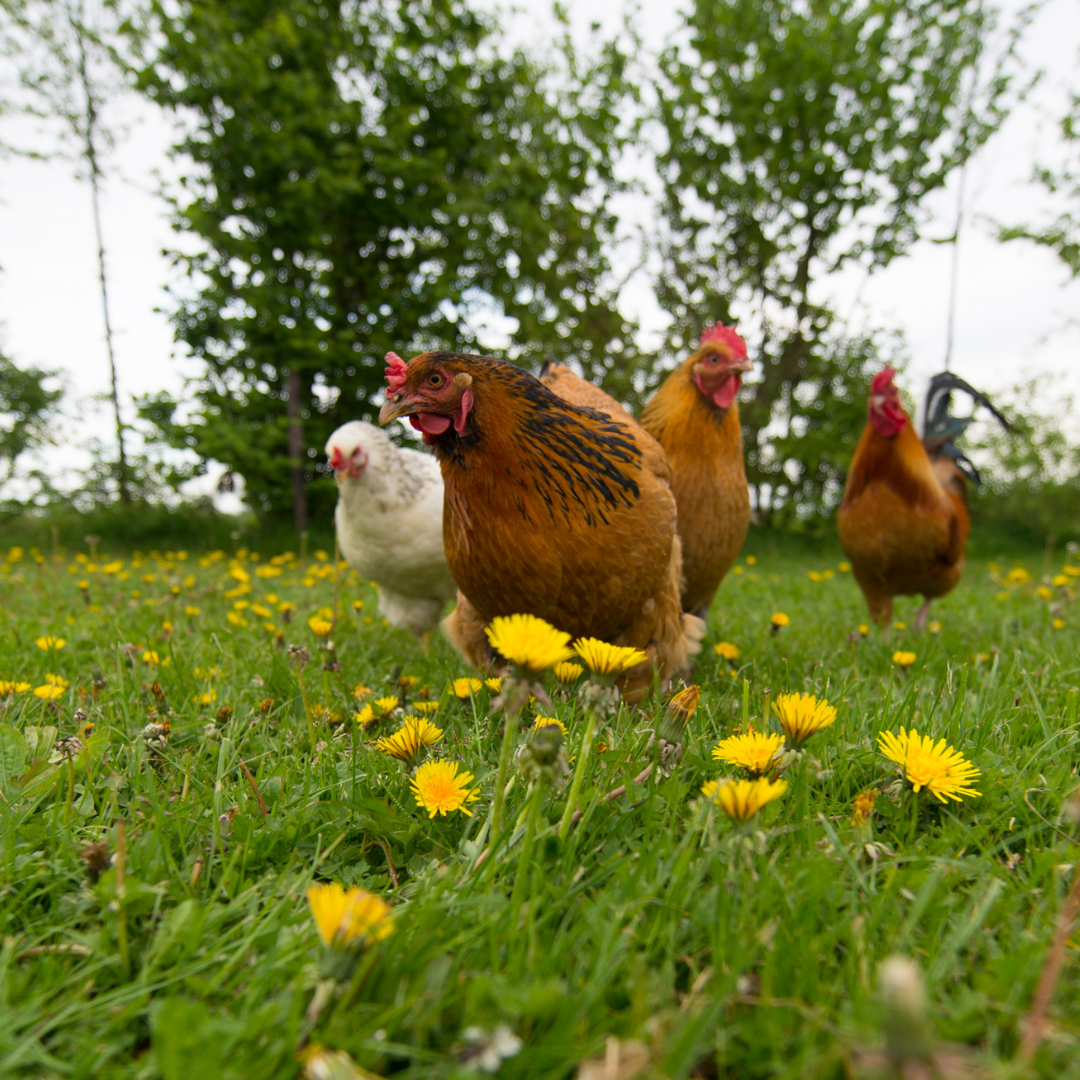


Try Our Samples
Not sure which bone broth to try for your dog or cat? Then don't worry you can grab a £5 sample. Samples can be great for cats because they only need a small amount of our broth daily.
Pork Bone Broth for Dogs & Cats
High in natural collagen. A great complimentary feed for your dog or cats
Goat Bone Broth for Dogs & Cats
Delciously flavoured. A perfect broth for dogs and cats with sensitive tummies.
Lamb Bone Broth for Dogs & Cats
High in natural collagen and great for dogs and cats with allergies.
